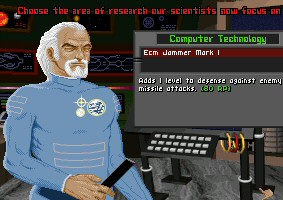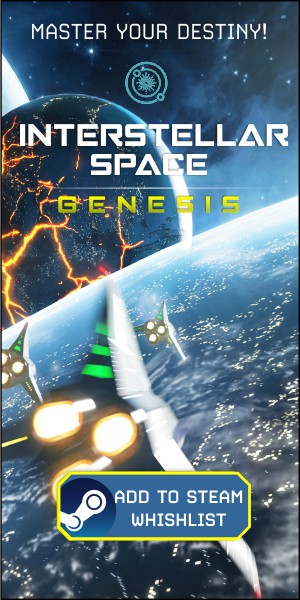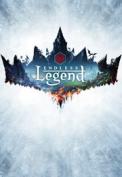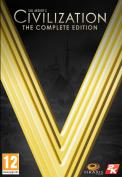The ability to research new technologies was and always will be a central aspect of any space strategy game. Much of the fun in this type of games comes from witnessing the evolution of a society in the long run on all its different aspects: entertainment, culture, life quality, biology, production, governments, communications, materials, propulsion engines, weapons, new types of ships, etc. New technologies unlock new possibilities, new opportunities and new toys to play with.
In the past many games tried many variants of “tech trees”, as they are vulgarly called. A tech tree is a collection of technologies that can be researched and all the possible investigation paths that lead to the next discoveries and so forth. You can see this in space strategy games as you can see this also in many other types of strategy games (like Civilization IV for example).
Predictability and lack of Re-playability
Some games offer simpler and smaller technology trees, others present more complex and diverse research paths. As this is satisfying in the beginning unfortunately soon enough the games start to lose their re-playability since the possible technologies to research are already known from the start and the technology investigation looses its interest. Normally all races have at their disposal the same tech tree to research for and players tend to beeline (focus) on specific technologies that they already know the path to reach for which turns the games very predictable and ultimately boring to replay.

- Master of Orion Research
In the recent past GalCiv2 tried to give its technology trees a little more salt and pepper by providing specialized tech trees for each race which means that every race supposedly has its own tech tree with special and unique technologies. As very interesting that this may sound at first soon enough it looses its full potential since in most cases the “specialized” just means a different tech tree shuffle, re-ordering, subset or superset. This is a good start but not in my opinion what we are ultimately looking for technology research.
Dynamic and Specialized Research: an Innovative and Realistic approach
It is fine that tech trees can be customized for specific races however I think we did not hit the mark yet. To increase the re-playability and realistic factors a better idea would be to have complete or at least some degree of uncertainty regarding what technologies could be researched next. Think about it, there are areas to research as always but the exact technologies are still not available to choose from in the beginning. Instead of researching, for example, the “Universal Translator” the player would be researching in the field of “Communications” and a possible breakthrough could be the “Universal Translator” but could also be “Subspace communications” or “Xeno Diplomacy Relations”. All of these possibilities could be available to unlock in a particular game but not available in the next. The exact technologies to be unlocked would depend on certain factors. In spite Sword of the Stars has already did some work in this area I think much still needs to be addressed.
An example:
A certain Race “R” is very creative by nature but their members lack personality or charisma. This would make them prone to discover some kinds of technologies in favor of others. When researching in the field of “Diplomacy” Race “R” would be more keen to discover high technological gadgets to increase diplomacy (like the “Universal Translator” for example) but would be less keen on making breakthroughs on social aspects of the “Diplomacy” technology and so it would be more difficult to breakthrough “Alliances” (or Advanced Intergalactic Governments) or “Trade” (or Advanced Trade). The innovation behind this is that it would not be impossible for the race to discover “Advanced Trade”, it would just mean that would be less likely to happen. Certain perks, bonuses, events or player decisions throughout the game would influence the ability to make breakthroughs more in one area than another.
An example list of “factors” that could contribute to a certain player prowess to certain technologies would be:
- An ancestor ruin is discovered
- Special artifacts were found on planets
- Unexpected contact with alien races that shares knowledge (with the “correct” approach/answer)
- Luck
- Race characteristics
- Decisions made on certain actions like colonizing, government decisions
- Previous breakthroughs
- Planet events
- Special people (specialists) born in the planets
Conclusion on Dynamic and Specialized Research
The uncertainty factor in research is very realistic and the possibility for a player to specialize in a specific technological field due to in-game events and decisions is also very attractive. These aspects of technology research would most definitely increase game re-playability and not only that it would give the player more sense of being in command of its empire with its own gameplay style. Some players would be more prone to research in the field of “Diplomacy” others more specialized in the field of “Weapons” others in the field of “Spaceship hulls”, others still were a bit luckier and discovered a very difficult or unreachable by normal means technology. This would be very interesting since then alliances would have a new meaning. Each race could be specialized in certain types of technologies, the kind that the player is interested or destined by fate to have.

12 Comments
Related Articles:
- Project Space Sector Dev Diary #3: Research
- Making a Space 4X Game: Technology
- More Details on Sins of a Solar Empire Rebellion
- 4 Reasons Why We Like to Play Space Strategy Games
- What are 4X Games: a Definition and links to Games







I agree that using randomly determined subsets of a larger tech tree can help make a space 4X game more replayable.
This system is found in Moo1: technologies had several generations, each representing an improved and more advanced incarnation. E.g. Mark 1 deflector shields, Mark 2, etc until levels as high as Mark 10 or would be reached towards the end of the game.
Since the techs the player can research are a randomly determined subset of these and others, it is possible that the player may end up with anything from staying very current in the latest shield techs by having access to each to new mark as it becomes available, or the opposite extreme: having no new shield tech for several levels of the game (ie. Being stuck with Mark 2 shield until say Mark 7 became available)
I think this approach has it’s merits, as the inherent randomness of the available tech would defy any players attempts to stick to an exact formula for research and gameplay. Instead, the player must react and adapt to the techs that game offers him, with substantial ramifcations for gameplay (If you require a certain type of tech (eg. terraforming +60 say) do you attempt to trade for it, or steal it by espionage? Will you risk a war with another empire so your soldiers can obtain a copy of the tech?
–
I think the downside of this approach is that unless carefully balanced, it can lead to luck playing an overly large part in gameplay. If one key tech becomes to influential or powerful, then games can be decided by the dice roll of whether or not that tech is researchable.
For instance the missile technology Scatter pack X in Moo1. This technology gives the player a much improved MIRV missile, which means that one missile contains many warheads. The problem is that as well as increasing the number of warheads, the destructive power of each is increased too, so the actual improvement is quadratic rather than linear.
Any system like this needs to take care to balance each generation of techs.
–
Another possibility is to borrow from Moo2 and make certain available techs mutually exclusive. Each successive level of research in Moo2 would open up three new possible techs to research next, but ordinarily the player can only choose one of them.
Whilst there was normally no randomised subsets of this in Moo2 as there was in Moo1 (a pity!) it had the effect of partitioning the tech tree into strategically equivalent options
Read the intro paragraph here:
http://strategywiki.org/wiki/Master_of_Orion_II/Physics
To generalise, your choice of tech at the beginning influenced what techs you would have to make do with for much of the rest of the game and affect what techs you would want to choose later.
This was significant because choosing a more powerful laser in the mid game to compensate for not getting a powerful on earlier, means a different trade off than if you’d have gone for the earlier version of the laser. The early laser might only require you to forego a slightly better space scanner that you can improve later on in the tech tree, but going for the medium strength laser in the mid-game might mean excluding a very valuable unique tech that can’t be obtained in the upper levels at all.
Similarly, taking the weaker version of the laser earlier on and then ignoring the mid-game laser and waiting for a later-game laser option to become available means spending more time with the weak laser, which affects what you can do with your fleets, how you can defend your territory, whether or not you can win planets from other empires and so on.
–
I would *really* love to see a game that could take these concepts of randomness from Moo1 and strategic equivalency from Moo2 and marry them together. Ideally the game would be sufficiently random as to affect your strategy, how easy it would be to accomplish it and what approach you must take to achieve it. But it would also avoid submitting the player to the roll of the dice, by allowing some strategically equivalent decisions to be made at each stage of the game. The player would need to react to what the game throws at him, but has a choice of ways to respond (with significant consequences.)
Now that *would* be something I would look forwards to in a new 4X game!
Sui great update on MOO1 and MOO2 tech tree specifics, thanks for bringing it back, it was a long time. So in MOO2 when you were “creative” you would get all the techs in a particular field but if uncreative only one of the three could be picked right? This was a very interesting twist since this forced the players back then to make research decisions that affect the entire game. This is the kind strategy in tech trees I think is currently missing in games like GalCiv2.
So I remember that in MOO1, as you say Sui, the tech classes that you could research are not always the same (Shields I, II, V, VIII …). I can’t remember, you say that this was completely random. Did not any in-game decisions or race perks had anything to do with this at all?
Yeah, being creative got you all of the techs in a field in Moo2, but it wasn’t the uncreativity trait that only allowed you to get on tech in a field, that was just standard behaviour. I think the uncreative racial trait meant that only one randomly selected tech was available per field. (Pretty much the same as the system in Moo1.)
So to give an example of a low level Moo2 tech field:
“Advanced construction” offers a choice of:
-=Automated factories
-=Planetary Missile base
-=Heavy armour (a ship modification)
Creatives get all three, uncreatives would only be offered one which the game selects randomly and any other race gets one, but has a free choice.
For Moo1, just substitute Moo1 techs. So the choice might be between Shield 4 (for ships), Personal Deflector shield +10 (for ground troops), or Planetary shield class V and the one you get is random. That’s it – the techs that will be avilable to you are determined at the start of the game and then that’s it, you have to live with what you’ve got and hopefully make up for it by trading, spying or conquering the techs you lack.
As for race customisation, that wasn’t present – there was no trait picks system in Moo1 or anything like that. You just have to use the premade races but they weren’t at all bad imo. :)
Sorry about the verbose description here
Sword of the Stars actually had a randomized tech tree– you had “core” technologies, but there were a variety of technologies that were randomized as well in every game. Further, the weighting of random technologies goes towards what each race is supposed to be proficient at.
I like the concept of a core tech tree with random branches, but the key issue, of course (as previously mentioned by the article and Sui Generis) is balance. In particular, developers have to keep an eye on a few things:
1) Techs that are simply imbalanced on their own (sounds obvious but many developers tend to trick themselves into thinking stuff is balanced when it isn’t, especially if they are not part of a core tree)
2) Combinations of doom, where a certain set of random tech combos allows you to do something too powerful (often only discovered after many, many hours of game testing in public beta or public release)
3) Weighting the randomness. It is critical to make sure that a “random” tech tree is only partially random: players, particularly in games against other humans, need to get some level of equal quantity/quality of techs, be it through weighting where they show up in the tree or wherever. To me, no serious game with online competition can have the risk of a situation where one player gets 20 optional techs and the other gets 0.
I found MOO2’s tech tree without the creative trait annoying– I always thought it’d be improved if you could go back and research multiple techs at an increased cost. So perhaps the second tech from a level in the tree would be at 1.25x research cost, and the third at 1.5x. That would force you to think very hard about teching laterally as opposed to up, but at least give you the option. I would also have modified creative to reduce research costs as opposed to give you everything at once, but I have the luxury of 10 years + of hindsight of playing the game to make that suggestion.
Just to throw another design concept out there for fun, one thing I have always been a big fan of in any game type is moderate randomization. By this I mean systems– be they for treasure, items, technology, etc, which can be modified in a meaningful but easy way for the developer to create more variety. The best example of this is Diablo’s loot system, which has a mix and match prefix/suffix for many, many options. The way I’d apply this to a research tree is giving a base chance (modifiable by race, traits, items, buildings, etc) of having a “breakthrough” on a particular technology. The breakthrough would be a slight bonus to what the base is– so for example, if you’re researching automated factories, maybe you get an “Efficient Automated Factory” which has +5 production over the norm, or “Tacyhon Personal Deflector Shields” which is +12 instead of +10. Of course you could go the opposite direction and have a chance to have a sub-par research effort as well…
Anyway, just some of my thoughts on this topic. Research trees make or brake a game– love the article and appreciate you swinging by Videolamer!
.-= GoldenJew´s last blog ..Fan Service Inc. =-.
A thought of this on a system I am working on (all design, no programing)
Research lets you advance
As you research you get technology points.
those technology points are either put
1) into a pot that provides you new technologies to research (ie if you have sufficient points in the pot it randomly selects a technology that is now Researchable for you and then deducts its cost from the pot)
2) into technologies that the “pot” has made researchable to actually research them
So if Laser I costs 100, (25% from the pot)
then, once I have the Right level of advancement, and sufficient tech points in the pot, there is a chance that Laser I will be come researchable (costing 25 from the Pot)… then I can choose to actually research it for another 75.
This way the player can just research all the techs they randomly get, or research fewer of them but have more choices.
So your idea is that after sufficient points have been earned the pot randomly “unlocks” a technology for research. Would this be purelly random or affected by same other factors? (previous techs, player profile, decisions, etc …)
Sounds interesting. In your opinion could this pot concept evolve to something like fields, as in MOO1? Example: Specific pot for Propulsion, Construction, Shields, etc?
Well I was basically thinking of having Something like “fields” in the fact that you have 2 types of points made simultaneously by “doing science”
1. Research points that give you “theory levels” in whichever field you choose to advance in (Physics, Chem, Math, Bio, Socio)
2. Tech points that then either go to ‘the pot’ or to specific technologies that ‘the pot’ has made researchable.
So The way you would affect what techs you got would be choosing
1) which of the 5 fields you put most of your research points into.
2) which techs you put tech points into (since they would be prerequisites for other techs)
Then…
1) if you had “extra” tech prerequisites… greater chance of a tech being selected
2) if the tech is obsolete (the theory levels are far lower than what you have)… less chance of it being selected
3) if you have a friend with the tech/an artifact with the tech…increased chance of the tech being selected
I figure the first option is the best for player/racial input. As you research more Beam Weapons, they tend to increase your chance of future Beam weapons… Racial input could be in the starting techs.
(the way I would have the “creative” race pick is how many Tech points you get for each Research point you produce..)
This mix research concept sounds great Krikkitone. I really fancy the idea of having research fields that you call theory levels (kinda like pure research, or incremental research) to unlock potential technologies and then the specific research concept where the player now focuses his research credit in those specific technologies for eventual breakthroughs.
If this mix research concept can be smoothly combined with a more solid system of tech pre-requesites, and other factors that contribute more to unlock certain technologies in favor of others (like previous techs previously researched) I think you have a very strong research concept in your hands. One that definitely would increase game replayability and a sense of being more “in control”. I also like your idea for the “creative” trait.
You have a believer :)
LOL
look up chemistry we covered this in class the different types of research
I also think that the game should actually correspond to real life
so that kids or people who play can actually learn something
civ III was great at this with the quote and then extra information if you wanted it civ IV was exceptional at it
Thanks for this great article.
I searched and read for a while about what I could find about dynamic research & development systems, and your article opened my eyes.
In fact I decided well before to adopt a dynamic system and began to design one, and the idea in your article fit well with what I made and finally expand and complete it.
I know that this article isn’t new, but age isn’t relevant :)
Thanks greatly again.
I’m glad you found the article useful! It’s been a while yes, but the content should not have aged too much. After these years I still find that there’s been little to no innovation in this front.
Haha yeah thanks again to have kept it!
To understand and design such system is far more complicated than “only” a tech tree, and this article helped me a lot to grasp a good and, above all, a feasible concept.
“After these years I still find that there’s been little to no innovation in this front.”
I’m agree, and there are much room to expand in this domain, but yeah it is also a load of work to do, and not as simple as we can think. Like some people said it is also easy to break the overall game system with it too. By the light of that it’s not surprising there is not much change in this domain.
As usual we have nothing for nothing I guess.
But anyway, I risk nothing to try one with my project and I will begin to implement this system in December. So it was time that I find finally, I think, a workable one.